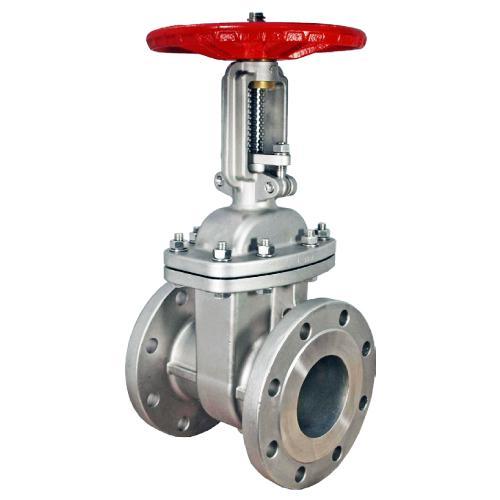High Quality Check Valves for Industrial Flow Control
Check valves are essential components that protect pumps, pipelines and process systems. Designed to allow fluid flow in one direction and block reverse flow, they safeguard against backflow, water hammer and equipment damage. From municipal water to oil & gas operations, choosing the right valve ensures long-term reliability and safety.
Our collection offers everything from compact inline models to heavy-duty forged steel designs-engineered for performance, fast shipping and competitive pricing.
Types of this valve
We carry a wide variety of this valves to cover every flow condition and industry application.
Swing Check Valves:
Swing check valves are widely used in water and wastewater systems. They provide reliable closure with low pressure drop and are available in cast iron, steel, or bronze for different types of applications.
Lift Check Valves:
Lift check valves are built for high-pressure, high-temperature service. The disc moves like a piston to control flow, making them a dependable choice for steam, gas and petrochemical systems.
Inline Check Valves:
Inline check valves feature a compact, simple design with very few moving parts. They are ideal for air, gas and water applications and come in brass or stainless steel for durability.
Piston Check Valves:
This design uses a guided piston that moves smoothly with the flow and creates a tight seal even when conditions fluctuate. The solid construction reduces wear and supports long service life in refineries, chemical plants and other heavy industrial operations.
Stop Check Valves:
This option delivers two functions in a single unit. It works automatically to control flow based on system pressure but can also be operated manually when needed. It is commonly used in boiler rooms, steam lines and high-temperature service where both automatic and manual flow control are required.
How to Select the Right Check Valve
Flow direction/orientation: Some check valves are designed to work only in horizontal lines, while others also fit vertical pipelines. Always confirm the correct orientation before installation to ensure proper function.
Pressure & temperature: Every valve has a rated pressure and temperature limit. Choosing a valve within those limits is important to avoid leaks, damage or unsafe operating conditions in your system.
Material compatibility: Different materials suit different jobs. Steel works well for high-pressure systems, brass and bronze are common in water service, while stainless steel is used for corrosive or chemical applications.
Connection type: This valves come with different connection styles such as threaded, flanged, wafer or welded ends. The right choice depends on your piping design and installation requirements.
Maintenance needs: Some check valves, like forged steel or silent types, are built to reduce wear and require less frequent maintenance. This lowers downtime and keeps systems running more reliably.
Why Buy from Trupply
When you purchase from our online collection, you get more than just a valve. You get quality, assurance and service:
Extensive Range: From cost-effective brass inline valves to industrial forged steel solutions.
Trusted Brands: Crane, Stockham and other reputed manufacturers.
Competitive Pricing: Single units or bulk orders, always priced for value.
Quality Documentation: Datasheets and material test reports available on request.
Applications Across Industries
These valves are used everywhere fluids need to flow in only one direction. Common applications include:
Water Supply & Distribution: Check valves prevent backflow into potable water systems, keeping drinking water safe and uncontaminated while maintaining steady line pressure in municipal pipelines and distribution networks.
Oil & Gas Industry: Widely used in upstream, midstream and downstream operations, check valves protect compressors, separators and pumps from reverse flow, ensuring reliable operation under high pressure and fluctuating process conditions.
HVAC & Building Systems: Essential for chilled water circuits, hydronic systems and cooling towers, check valves prevent reverse circulation, reduce wear on pumps and maintain consistent energy-efficient performance across commercial and industrial facilities.
Power Plants: In steam, turbine and high-pressure systems, check valves play a critical role in ensuring unidirectional flow, preventing equipment damage and maintaining operational safety under demanding temperature and pressure conditions.
Chemical & Process Industries: Designed for corrosive and hazardous fluids, check valves ensure unidirectional flow, protect sensitive equipment and preserve process integrity in chemical plants, refineries and specialized manufacturing applications.
Fire Protection Systems: Found in hydrants, fire pumps and sprinkler systems, check valves secure directional water flow, prevent contamination and guarantee reliability during emergencies where instant, uninterrupted operation is essential.
Shop Industrial Check Valves Online Today
Whether you’re a contractor sourcing valves, a plant manager replacing equipment or an engineer specifying new systems our collection has the right industrial check valve for you. Explore swing, lift, inline, wafer, silent, piston, forged steel and bronze/brass options all available for quick order and fast delivery.
FAQs
What is the main purpose of a check valve?
This valve ensures that fluid flows in only one direction, preventing reverse flow that can damage equipment or contaminate clean systems.
What is the difference between a swing and a lift check valve?
A swing check valve uses a hinged disc that swings open, making it ideal for low-pressure systems. A lift check valve uses a piston-like disc that moves up and down, making it better suited for high-pressure or steam applications.
Which materials are best for check valves?
-
Bronze/Brass: Potable water and plumbing.
-
Stainless Steel: Corrosive media and industrial use.
-
Carbon Steel: Non-corrosive, high-pressure, high-temperature industrial applications.












